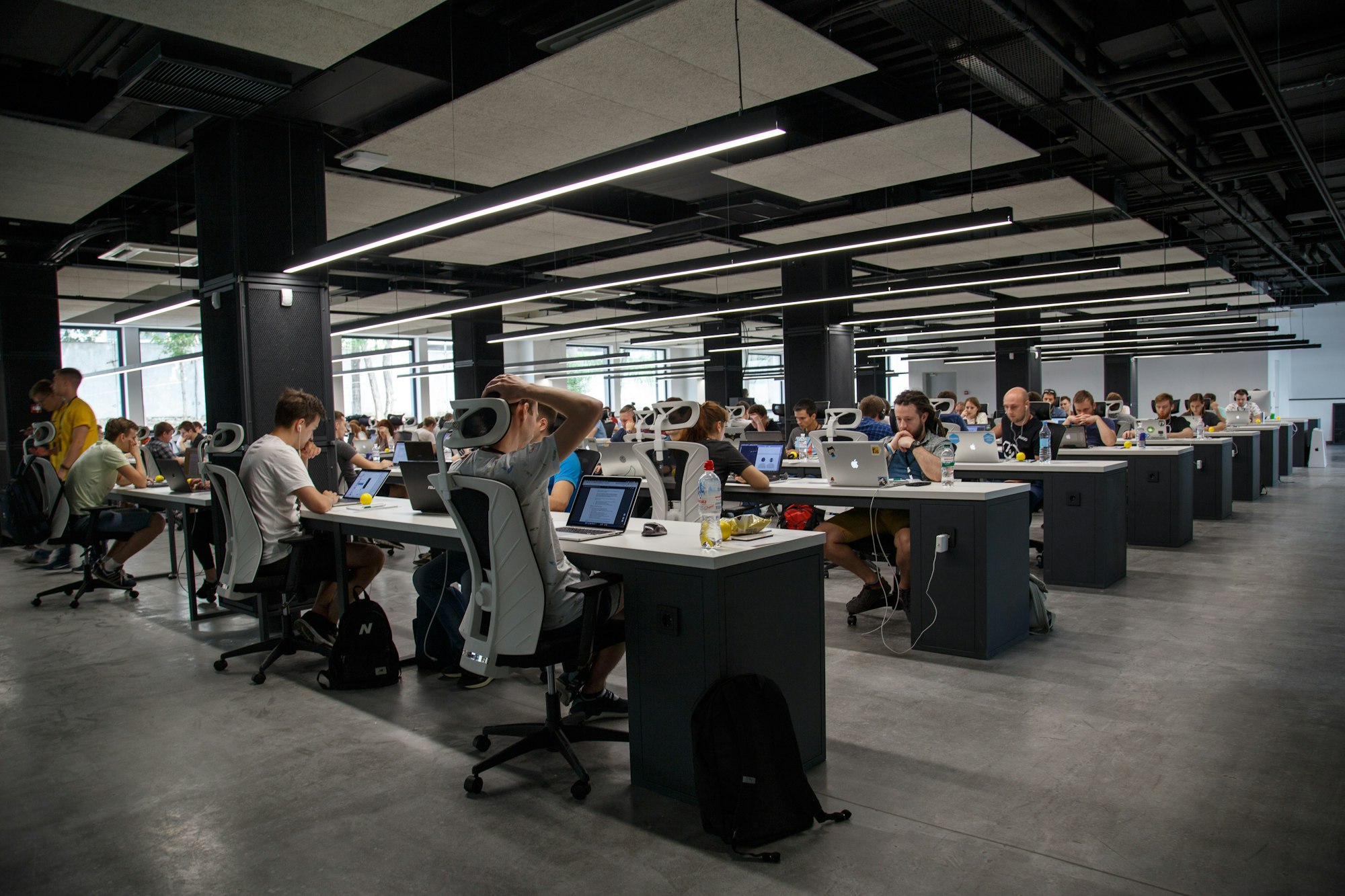Cutting Down on Complexity (JHP Day 16)

We've come to live in a world where digital information is widespread. Through phones, computers, iPads and all the other technology that's been introduced, we now have access to more documented knowledge than ever in human history.
I think the last few years have really come to show, especially for my own generation born in the late 90's to early 2000s, the exact ramifications of giving people access to all of it from such a young age.
One of my favourite songs by Bo Burnham is "Welcome to the Internet" - a piece written about the randomness of content online, and it's real effects in the age of information that we live in.

The internet has become a staple tool for education, social life, interests, cooking, and almost every other facet of life you can imagine - and in some ways it's massively helpful. But this post is about one way that it's not. The idea that with all of the content that we're getting exposed to on a daily basis, scrolling, browsing, reading - it's getting harder and harder to make sense of things on a deeper level. E.O. Wilson explains it brilliantly through this quote:

Now more than ever, it's become essential for us all to be wise, not just knowledgeable.
The Value of Wisdom
I once heard this quote that I thought was a really good way of explaining the difference between knowledge and wisdom:
"Knowledge is knowing a tomato is a fruit - wisdom is knowing you don't put a tomato in fruit salad."
It gets to the heart of what I'm talking about - applying what you know to contextual scenarios.

What matters in today's world is whether you can cut back on the noise, find the right pieces of info - the diamonds in the rough - and combine them to provide value to people. Whether that's in an academic field, an engineering job, or a personal blog like this one.
With everyone having their own accounts and material to post, the amount of digital content can be deafening, which makes it all the more important to be ruthless with the kinds of things you're consuming.
So how can you do it?
Being Ruthless With Your Commitments
I listened to a deep dive podcast between Ali Abdaal and Sahil Bloom, two massive online creators, and the insights from it really gave me new perspective on just how focused you have to be to get what you want out of life.
In the podcast, Sahil talks about a practice that Warren Buffet once spoke of, regarding a list of priorities that he recommended people make.
He said, "Write down 20 things that are important to you in life. Cross 10 off the list and you're left with 10 things that really matter, then cross 7 off the list and you're left with the 3 things that truly truly matter to you. If anything comes up that's not those three, you say no to them."
When you say yes and you take on all of those extra things in the 20, you become completely immersed, and your headspace is strapped. So when the stuff that really matters - the exciting opportunities come along, you're either swamped with those other things, or you just don't have the mental capacity to consider it, and say no outright. You miss the high upside things because you took the random "one off singles".
The idea of having just three priorities sounds very draconian, but it's a great tactic for cutting down on the noise associated in our own lives, and also through the digital world and the content that we consume.
It really puts perspective on every action we take, especially online, and asking ourselves whether what we're consuming is really going to be good for us in the long term.

My Own Experience
I related a lot listening to that part of the podcast, and hearing about the idea of 'complexity creep' - that as you get more access to opportunities, you're swarmed with the amount of ways you can go with it. But actually, it's much easier and more effective to focus on the simple stuff - the bread and butter. To double down and do that well.

I was caught up in a dilemma recently, considering this new engineering initiative that I'd found online and thought would be really interesting for me to join - knowing that it might hold exciting opportunities but being unable to accept it because I knew if I did, I'd set myself on the path to burnout again.
I think I've had that mindset for a while, wanting to take every opportunity available to me, and fearing like I'm missing out on things if I don't. But writing and thinking about this has really helped me.

This quote from Naval Ravikant puts it really well - by leaving space in your calendar, and thoroughly considering the opportunities available to you, you allow yourself the room to find the best ones, rather than whatever you see.
Whether that's an exciting engineering project, meeting a friend or partner who might become an integral part of your life later on, or getting started on that new hobby. As humans we will naturally find ways to fill our time with things we find interesting and fulfilling.
Complexity in Engineering

One thing I see a lot in academia, especially from some of the older generations, is this mindset that complex topics are, by nature, complex. There's just no way to simplify them and you just have to knuckle down and learn it all. I used to hear that a lot from teachers in the past.
It annoyed me in part because it meant that I had to face the truth of knuckling down to actually do some work, which I don't think many of us are jumping at the opportunity for. But I also grew to accept it very early on, understanding that that process was necessary.

What annoyed me more, was that even though I agreed with it in that respect, I knew for a fact that those teachers went through the same pathways of understanding the topic themselves - and they assumed that it was the only way to go through it. That it would have to be just as difficult for the students going through it today, and it was a necessary form of suffering for them. In reality, there are boundless opportunities available to simplify information, or make it digestible and easy for students to pick up quickly.

It's one of the reasons I've felt a strong need to create content around engineering specifically, and explaining things from the perspective of a student who views the world in the same way as other students. I'd like to think that perspective puts me in a better position to help, and really pick apart the complicated engineering based subjects that a lot of us are trying to learn.
I'm also viewing it from the perspective that by creating resources or material based around simplifying engineering topics, I'll understand the concepts better myself.

So nowadays I'm much more focused on what I can do to help in that respect - addressing the concerns, confusion and questions that many of us have when it comes to the career. I've got a few projects in the works around that, so we'll see where it goes!
Speeding Up Society
Going along with the idea of simplifying things, I think a lot of the older generation nowadays love to rant about how we have shorter attention spans than ever before because of technology, and its destroying us gradually. To some extent I understand that it's not helpful for people who can't sit down and focus for extended periods of time, or for those of us whose tendencies lean to them being triggered by it. But I also think that it's been really helpful for making us a faster, more productive and efficient generation than ever before.

Nowadays, if you can't explain a business idea in a 2 minute elevator pitch, people aren't interested. If the first 5 seconds of your YouTube video, Tiktok or Instagram reel don't catch people's attention, they won't watch it. It places this immense weight on providing real value quickly, and I think that's amazing, because it's pushed us to think about simplifying and speeding up the things that we do even more.
One thing I'm hearing a lot from creators online now is about the value of being lazy - something that I think a few decades ago, people would have scoffed at, saying that hard work is the basis for success, and there's no way being lazy could possibly be beneficial.
Hard work is definitely necessary for success, I wouldn't contest that. Still, people are starting to find upsides to the idea of being lazy. When you're unwilling to put time and effort in, you find a way to make things work without you having to.

That entire practice is centred around thinking creatively to make things more efficient. Extending that to society, and pushing for the creation of tools that help with automation etc. - it puts us on the path of becoming self sustaining, not having to dedicate unnecessary time and effort on things that don't require it.
In first world countries, many of us have gotten to a point where our main concerns are about finding fulfilment and success in our lives, rather than food, shelter and a place to sleep. So automating those things has become a massive focus for companies nowadays. It all goes along with the idea that there's a parallel to draw between being lazy or unwilling to spend time on things - and being efficient.

Trends with technology always lean towards speeding things up. For example, trips to other countries that would've taken days now take hours on a plane. The counter to all of this efficiency and productivity, is that it's not giving us space to step back and focus on our own mental health - hence why we see a big move to meditation and eastern spirituality practices in the West, through self help books and other content.
It's a hard balance to draw, being efficient and productive, whilst also able to sit and spend time thinking about things deeply for a while - but it's something I think we can all get better with over time.
On the off chance that you've read something on here and loved it, or want to read more, feel free to shoot me a message on my socials:
Instagram:
Twitter:
Facebook:
The feedback helps massively. Thanks!
